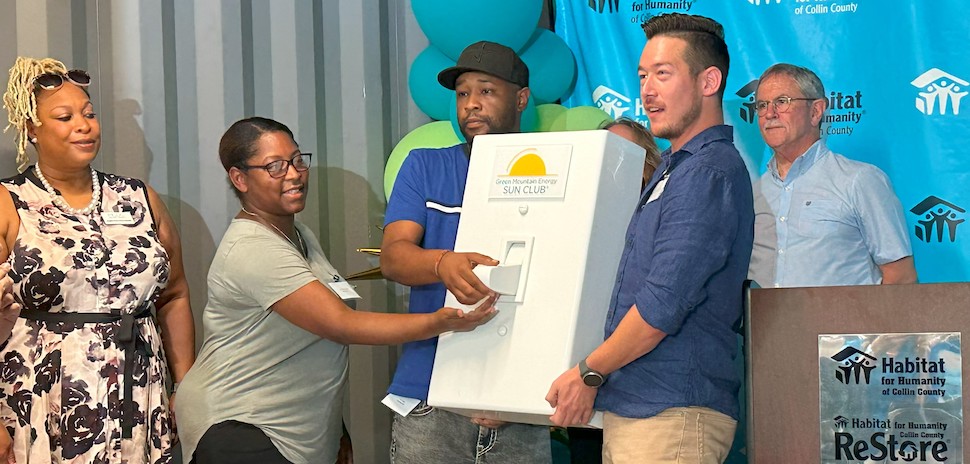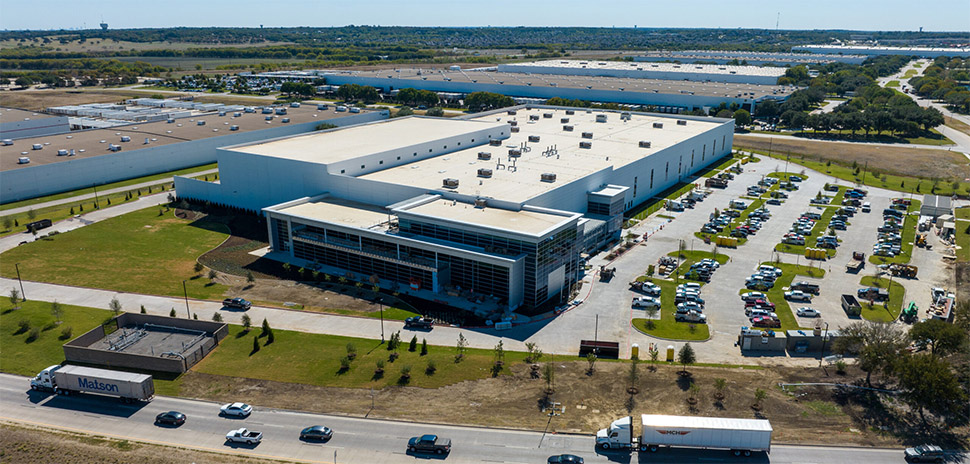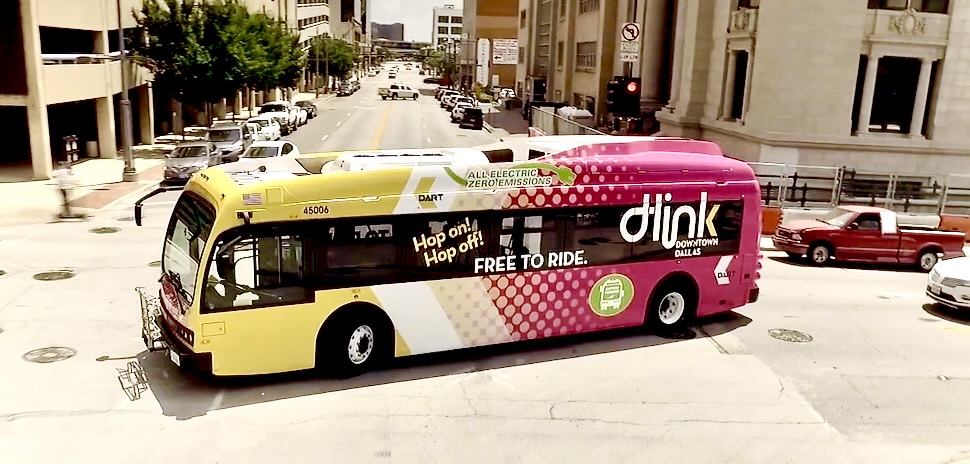Habitat for Humanity of Collin County and Green Mountain Energy “flipped the switch” this week on the first two solar-powered homes at HFHCC’s latest project, The Cotton Groves in McKinney.
The project is using both traditional construction methods and repurposed shipping containers to build energy-efficient, sustainable homes. The development will also include rooftop solar—which is being installed by Collective Sun—and electric vehicle charging outlets.
Green Mountain Energy and HFHCC say the rooftop arrays will allow 14 families to go solar. They were made possible through a $210,000 grant by Green Mountain Energy Sun Club and through an innovative financing tool offered by Collective Sun. Combined, the families are expected to save approximately $17,500 in annual energy costs.
“We’re so excited to do our very first solar neighborhood with the help of Sun Club,” Celeste Cox, CEO of Habitat for Humanity of Collin County, said in a statement. “The savings for our homeowners will make a real difference in the lives of these first-time homeowners. Our first families will be moving into their homes soon, and they’re truly blessed to be a part of a sustainable community.”
Project to feature 35 townhomes for selected families
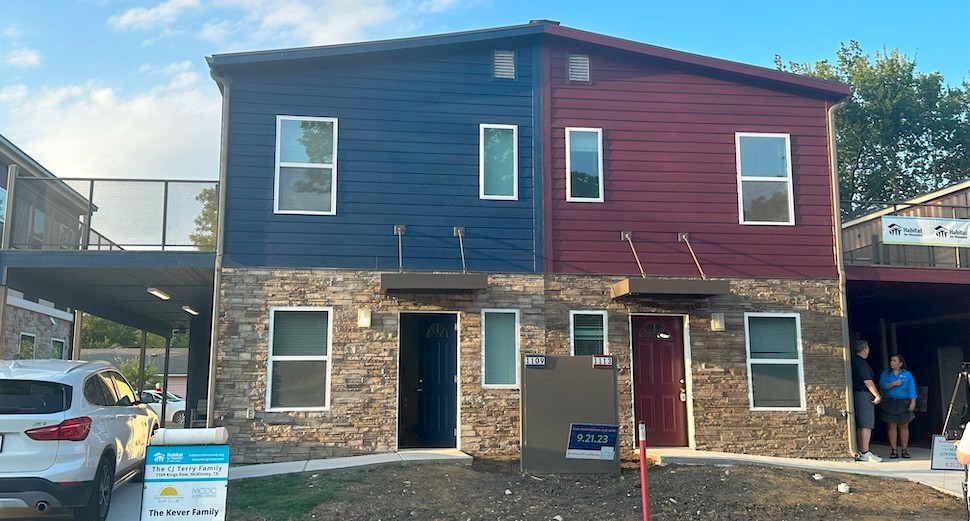
Two solar-powered homes built with shipping containers and traditional materials at The Cotton Groves development in McKinney [Photo: Green Mountain Energy]
The Cotton Groves project is designed to address the need for affordable housing in McKinney, HFHCC said. Low- to moderate-income families who make 30% to 60% of the area median household income are eligible for the housing.
HFHCC said “selected families” will move into the 35 three- and four-bedroom townhomes at the development. The eco-friendly, former shipping-container units “are a high-end design concept made of steel, built to withstand weathering, and require little maintenance,” HFHCC said.
In a further impact-oriented move, HFHCC said the project will employ solar installers from low- to moderate-income backgrounds who are newly trained by Green Careers Dallas, “creating a career path in a growing industry.”
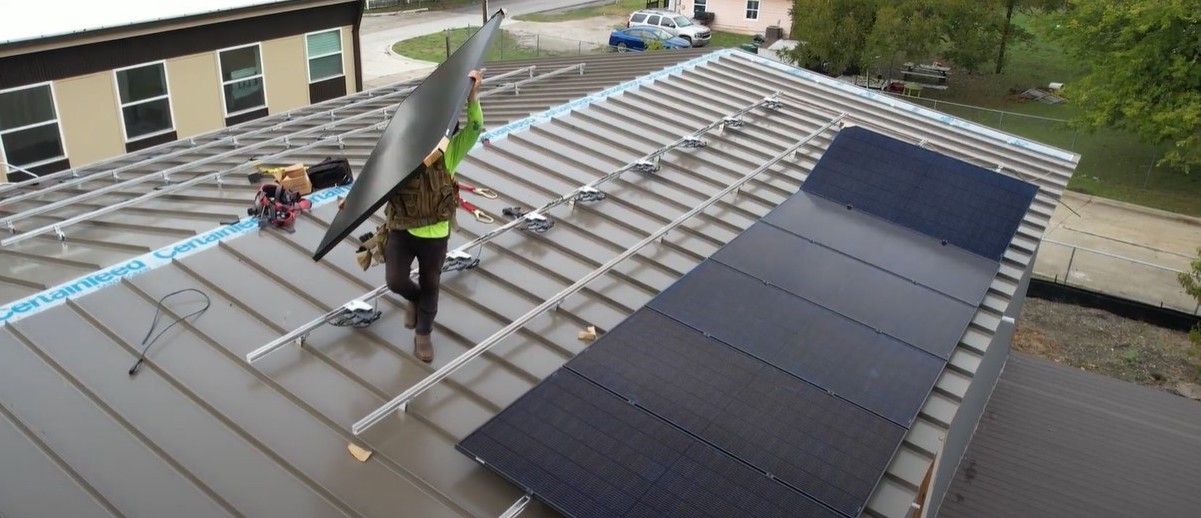
HFHCC said the project will employ solar installers from low- to moderate-income backgrounds who are newly trained by Green Careers Dallas. [Photo: Green Mountain Energy]
Green Mountain’s Sun Club has donated more than $13M
The Green Mountain Energy Sun Club has been empowering local communities and advancing sustainability since 2002, the organization said. The charitable program has donated more than $13 million to 156 nonprofit organizations across Texas and the Northeast—supporting projects that promote renewable energy, energy efficiency, resource conservation, education and awareness, clean transportation, and sustainable agriculture. Green Mountain Energy said it invites its customers and employees to contribute to the program.
“Sun Club is honored to be part of this innovative project that will help low-income families become homeowners,” Mark Parsons, Green Mountain Energy vice president, said in a statement. “We’re thrilled to be able to help these families save money while safeguarding the environment for future generations. This grant will ensure that the new homeowners have a head start on an environmentally conscious lifestyle.”
Habitat Collin County has been serving families in Collin County since August 1992. Since then, it has built 230 new homes, repaired over 700 homes, and over 70 homes internationally. The chapter serves all of Collin County, providing new home construction and home repair services to qualifying families earning below median incomes for the area.
Families interested in homeownership at The Cotton Groves can apply via a pre-approval process. HFHCC’s Family Selection committee will select homeowners based on three criteria: the applicant’s level of need, their willingness to partner with the organization, and their ability to repay a mortgage through an affordable payment plan.
![]()
Get on the list.
Dallas Innovates, every day.
Sign up to keep your eye on what’s new and next in Dallas-Fort Worth, every day.










